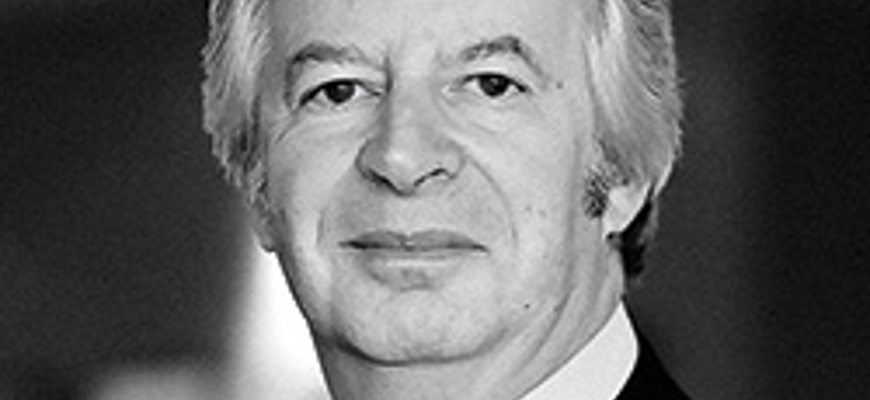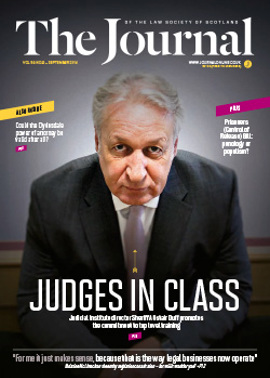Follow the leader

He has never considered himself a trailblazer, but Pinsent Masons’ Craig Connal QC has done his share of pioneering since qualifying in 1977.
One of the first solicitors to be granted extended rights of audience, in 2002 he became the first Scottish solicitor advocate to be appointed Queen’s Counsel. In 2011, he was the first civil solicitor advocate to present a case before the UK Supreme Court, which led to him being named the Law Society of England & Wales Solicitor Advocate of the Year in 2012.
Born in Essex and brought up in Hamilton, Connal came to the profession through accident rather than design. On leaving school, an educational psychologist friend put him through a psychometric test and his answers suggested a law career.
During training, his interest in court work was encouraged by Bobby Dickson (now a sheriff at Airdrie). On joining the then McGrigor Donald, the firm’s senior partner at the time, Alistair Hamilton, was equally supportive, leading, ultimately, to Connal’s breakthrough appointment as Queen’s Counsel.
“At that time the QC appointments system in Scotland was neither transparent nor systematised,” Connal comments, “and no one knew exactly how a selection was made. So we leapt into the dark, sent a form of CV to the powers that be and waited for a response.”
He believes his QC status has made a difference to his career, though not a fundamental one. He says: “It changes attitudes and I’ve certainly done things that I couldn’t have done otherwise.”
That includes appearing in the appellate courts, and prosecuting for a short time as an ad hoc advocate depute in the High Court, which gave him an insight into a different world. Above all, he would never have been instructed to run a case in the Supreme Court. He declares the court “an interesting place”, adding: “It is much less concerned with formalities. I would have liked my appearance to go on for much longer than it did. It was an endlessly fascinating exercise in discussion rather than presentation.”
Connal believes that today, it is tougher than before for a solicitor advocate to become a QC. He says: “I have been surprised by how few appointments have been made. Many solicitor advocates are not appearing in open court, and fewer and fewer cases lead to significant hearings.”
Looking more widely, Connal believes the profession faces distinctive problems, citing the pressure on public funding and squeeze on legal aid among other factors. He fears the potentially malign influence of a rigid focus on the bottom line.
“In a commercial environment the pressure to do what’s expedient can be very difficult to resist,” he adds. “However, we should all remember that clients don’t pay us to tell them what they want to hear. Our job is to tell them what the right position is, then help them deal with that.”
While his QC status has marked his career in a way that he would not have anticipated, he adds: “Usually I am more proud if I do a difficult job well – that gives me the greatest satisfaction. We are in a very commercial world and money tends to dominate. I am motivated by legal issues and challenges. Perhaps I am a dinosaur; I hope not.”
In this issue
- Keep the job going?
- Asbestos and the state of knowledge
- Damned lies and bogus statistics
- Sorry seems to be the hardest word
- With a fair RWIND
- Planning land reform: the land of Scotland and the common good
- Reading for pleasure
- Opinion: Joanne Gosney
- Book reviews
- Profile
- President's column
- Roadshows roll out
- People on the move
- Outcomes, or own goals?
- Power and authority
- Licensed to reoffend?
- Raising the bar for the bench
- Title insurance – under the bonnet
- Working for Uncle Sam
- Family failings
- Shopping with protection
- Private sector progress at public sector expense?
- Rent review: the storm before the calm
- Doping: raising the stakes
- New financial services arm for ILG
- Under starter's orders
- Childcare: the benefits
- Law reform roundup
- Follow the leader
- Five years from when?
- Ask Ash
- Take the money?
- From the Brussels office
- Beware the bank calls
- Mentoring – why?






